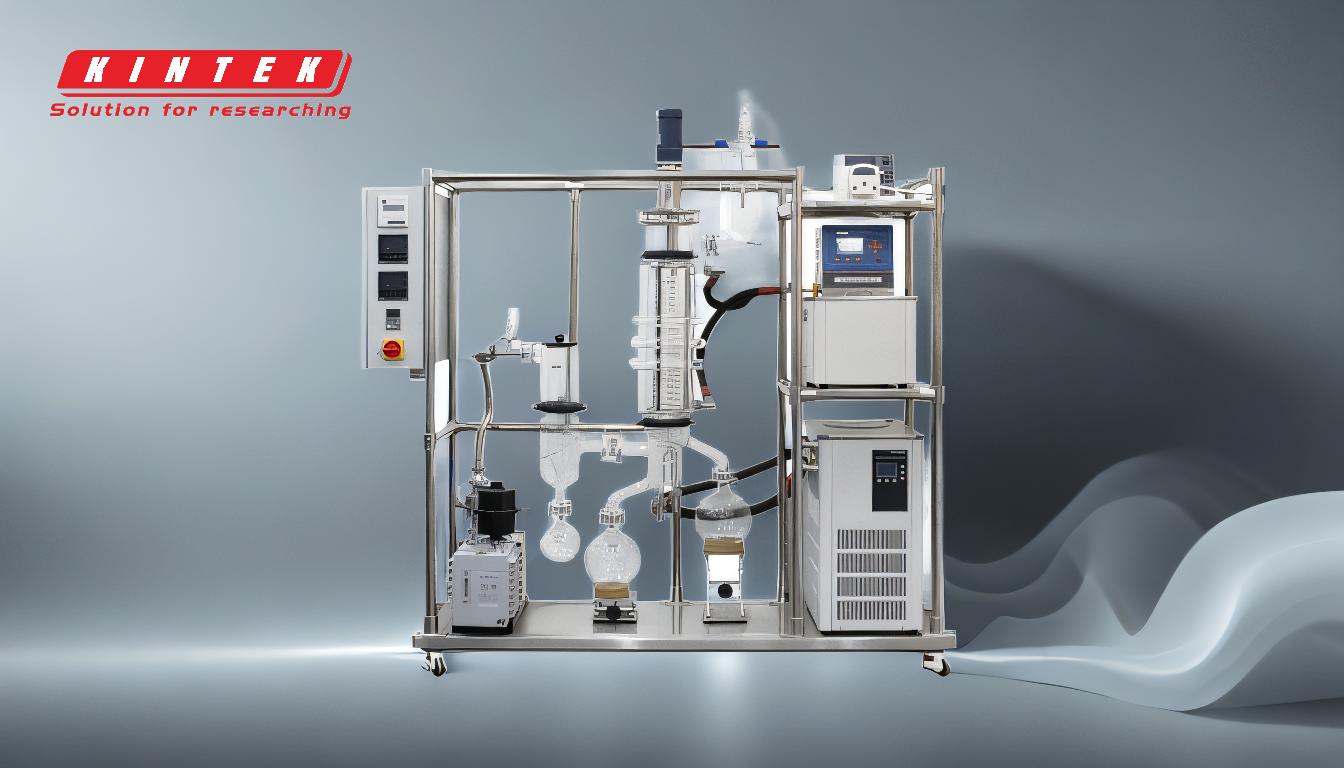Vacuum distillation is a specialized separation technique used to purify liquids with high boiling points or those that decompose at elevated temperatures. By reducing the surrounding pressure, the boiling points of these liquids are lowered, allowing them to evaporate at lower temperatures. This process is particularly important in industries like chemicals and pharmaceuticals, where high-purity compounds are essential. It is also environmentally friendly, as it enables the recovery and reuse of materials, reducing waste. Vacuum distillation is a critical method for handling heat-sensitive substances and achieving efficient separation without thermal degradation.
Key Points Explained:

-
Definition and Principle of Vacuum Distillation:
- Vacuum distillation is a process that separates and purifies liquids by evaporating them under reduced pressure and condensing the vapor.
- The key principle is that lowering the pressure reduces the boiling point of the liquid, allowing it to evaporate at lower temperatures. This is particularly useful for compounds with high boiling points or those that decompose at high temperatures.
-
How Vacuum Distillation Works:
- The process involves placing the liquid mixture in a vacuum chamber where the pressure is reduced below atmospheric levels.
- As the pressure decreases, the boiling point of the liquid also decreases. When the vapor pressure of the liquid matches the surrounding pressure, it vaporizes.
- The vapor is then condensed back into a liquid form and collected as a high-purity distillate.
-
Applications of Vacuum Distillation:
- Chemical Industry: Used to separate and purify high-boiling-point compounds, such as heavy oils, resins, and polymers.
- Pharmaceutical Industry: Essential for producing high-purity active pharmaceutical ingredients (APIs) and intermediates that are heat-sensitive.
- Environmental Applications: Enables the recovery and recycling of solvents and other materials, reducing waste and environmental impact.
-
Advantages of Vacuum Distillation:
- Lower Operating Temperatures: Reduces the risk of thermal decomposition, making it suitable for heat-sensitive materials.
- High Purity: Produces distillates with very low levels of impurities, which is critical in industries like pharmaceuticals.
- Energy Efficiency: Lower temperatures often translate to reduced energy consumption compared to traditional distillation methods.
-
Comparison with Atmospheric Distillation:
- Atmospheric distillation operates at standard pressure, requiring higher temperatures to achieve boiling.
- Vacuum distillation, on the other hand, operates under reduced pressure, enabling boiling at lower temperatures. This makes it more suitable for compounds that degrade at high temperatures.
-
Environmental and Economic Benefits:
- The process generates clean distillates, such as water with very low conductivity, which can be recycled or safely discharged.
- By enabling the recovery of valuable materials, vacuum distillation reduces waste and promotes sustainability.
-
Challenges and Limitations:
- Equipment Complexity: Vacuum distillation systems require specialized equipment to maintain low pressure, which can increase costs.
- Operational Expertise: The process demands precise control of pressure and temperature, requiring skilled operators.
- Material Compatibility: The materials used in the distillation apparatus must withstand vacuum conditions and potential chemical reactions.
-
Integration with Other Techniques:
- Vacuum distillation is often combined with other separation methods, such as steam or fractional distillation, to enhance efficiency and achieve better separation of complex mixtures.
- For example, in the petrochemical industry, vacuum distillation is used alongside atmospheric distillation to refine crude oil into various fractions.
-
Importance in Modern Industries:
- The ability to process heat-sensitive and high-boiling-point materials makes vacuum distillation indispensable in industries requiring high-purity products.
- Its role in reducing environmental impact by enabling material recovery and recycling further underscores its importance in sustainable manufacturing practices.
By leveraging the principles of reduced pressure and lower boiling points, vacuum distillation offers a versatile and efficient solution for separating and purifying complex liquid mixtures, making it a cornerstone of modern industrial processes.
Summary Table:
| Aspect | Details |
|---|---|
| Definition | Separates and purifies liquids by evaporating them under reduced pressure. |
| Principle | Lowering pressure reduces boiling points, enabling evaporation at lower temperatures. |
| Applications | Chemical, pharmaceutical, and environmental industries. |
| Advantages | Lower operating temperatures, high purity, and energy efficiency. |
| Challenges | Equipment complexity, operational expertise, and material compatibility. |
| Environmental Benefits | Reduces waste and promotes sustainability through material recovery. |
Discover how vacuum distillation can optimize your processes—contact our experts today!












